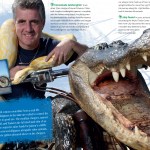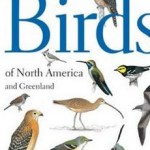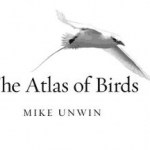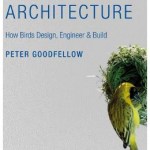book review
The Fossil Chronicles: How Two Controversial Discoveries Changed Our View of Human Evolution and Born in Africa: The Quest for the Origins of Human Life are two very recent books on human evolution, both of which I recommend, depending on your interests.
The first is by Dean Falk, who has studied brain endocasts for the last 30 years. Falk chronicles her early work on endocasts, the relationship between that work and the much earlier work of Raymond Dart, in South Africa on the first Australopith fossil, and touches on the problems of being a woman with somewhat controversial findings to…
I'm enjoying James Lawrence Powell's book "The Inquisition of Climate Science" Powell's book specifically addresses the clilmate change denialist movement and the global warming deniers themselves, and does so severely. He documents and discusses who is paying for climate change denialism documents the lack of scientific credenntials of the denialists, and outlines and describes in detail events such as "climate gate."
The book is exceptionally well documented and could actually be used as a supplementary text in a class on science policy or science and society.
Author's bio from the…
The The Manga Guide to Relativity might come in especially handy these days, what with faster than light neutrinos, Republican candidates and other science-defying entities zooming around. And, it is one of those Japanese anime things, which makes it cool. This is a story set in Tagai Academy summer's school session, where the "plucky" Miss Uraga teaches the kids relativity.
When you have finished reading this book you will be able to calculate the effects of time dilation, explain the Twin Paradox, understand Einsteinium famous E=mc2 and get a job at CERN.
Hideo Nitta, is in the…
These are books that I've reviewed here, and would like to recommend that you seriously consider picking up if you are looking for a cool present for someone and you think they should read more science.
I'm including a couple of bird books in this list, but I also recently wrote up a summary of just bird books that you may want to check out.
These are in no particular order, and I'm not paying a lot of attention to publication dates. What matters is that I've I've put the book in this stack of books I've got here that I clean out every year about this time; Some are clearly older than…
New York Academy of Sciences Children's Science Book Award Winner Vicki Cobb has a new volume called "See for Yourself: More Than 100 Amazing Experiments for Science Fairs and Projects (Second Edition)"
Actually, it isn't entirely new. It's a second edition, but updated.
This is for 10 year olds and up, and it does in fact have 100 ways to make glue, fake old documents, extract DNA, do interesting anatomical experiments like finding your blind spot, produce your own ink, hypnotize your friends, make crystal flowers, etc. etc. all with common household ingredients.
It is paperback, richly…
Ripley's Believe It Or Not! Strikingly True is the kind of book you do not want to open up while your toddler is standing around looking for something to look at. Huxley may never be the same.
A pig with no back legs that walks upright on its front legs? People with very large numbers of toes? Squid?
And, most shockingly, ectoplasm. You've gotta love the ectoplasm.
The world is a strange place, and everybody has a camera, so I think there will be no shortage of new volumes in this series of books about the bizarre. This particular issue seems to be more icky and shocking than usual, but…
If you read only one book this holiday season, make it all of the following twenty or so!
But seriously ... I'd like to do something today that I've been meaning to do, quite literally, for years. I want to run down a selection of readings that would provide any inquisitive person with a solid grounding in Behavioral Biological theory. At the very outset you need to know that this is not about Evolutionary Psychology. Evolutionary Psychology is something different. I'll explain some other time what the differences are. For now, we are only speaking of fairly traditional Darwinian…
Why would you want a field guide to all of the carninvores? They live everywhere, so there is no reason to carry around a field identification guide with ALL of them unless you were going everywhere in the whole world on one trip!
Yet, there is such a field guide, Carnivores of the World (Princeton Field Guides), and the truth is, this is ONE OF THE COOLEST BOOKS I'VE EVER SEEN! All the carnivores (almost) in one book. Interestingly, it turns out to be possible. There are fewer than three hundred species of terrestrial carnivore in the whole world, and that is fittable in a single book…
I like to think I'm developing a little niche here on Confessions of a Science Librarian, at least as far as some of my book reviews. And I like to think that niche is reviewing science-oriented graphic novels. And I've reviewed a few over the past couple of years. Logicomix (review), Evolution: The Story of Life on Earth (review) and The Stuff of Life: A Graphic Guide to Genetics and DNA (review).
And now the amazing new graphic novel Feynman, written by Jim Ottaviani and art by Leland Myrick. (Colours by Hilary Sycamore).
Now when I first heard about this new biography of Richard Feynman…
Face it. Half the time ... most of the time, really ... you use your Peterson (or some other favorite "field guide") as a checklist. You see a bird and you pretty much know in your head what it is, but you need to look it up to see what the three or four similar ducks or woodpeckers or whatever are in your area in order to be sure that it is a Common Merganser or a Red Headed Woodpecker or whatever. All you need is a basic picture (drawing preferred for this sort of thing) the names of the birds and basic range maps.
That is the role played by the Princeton Illustrated Checklists; These…
How are birds related to dinosaurs, crocodiles, and pterosaurs? Where do birds live, and not live? How many bird species are there, and how many actual birds, and how does this vary across the glob? What about endemics?; Where ate the most local species found? Mike Unwin's The Atlas of Birds: Diversity, Behavior, and Conservation covers this and more in a richly illustrated detailed global survey of Aves.
This new and very impressive, and highly accessible volume covers bird biogeography with an overview of counts and diversity followed by a continent-by-continent review, to give you an idea…
Birds don't live in nests. They make nests for specific purposes, use them for that purpose, then abandon them. Or, sometimes they don't abandon them, but rather add on and use them again and again, but in between they don't live in or on them. Well, sometimes they hang out on them a lot. And not all nests are for putting their eggs in. In fact, sometimes a nest is more of a symbol of quality and overall bird sexiness than it is a place to keep the chicks. As it were. Oh, and sometimes they live in the nests, now that I think about it ... It's complicated.
But there is a book that…
Suppose you are an intelligent, thoughtful person with a thirst for information, a desire to be challenged, and a tendency to not accept received knowledge at face value. You are embedded in a traditional Christian culture where most of your family, your child's teachers and friends and those friends' families, the people where you and your spouse work and most people in your social circles assume that Evolution is "only a theory" and should be taught, if at all, along side alternative theories such as that the earth is 6,000 years old and was created in seven days. But you don't want that…
Here in the Northern Hemisphere, many of our birds fly away in the fall. Other, very cool birds from even farther north, depending on where you live then arrive. But just about now, where I live, we are at the tail end of the migration out and not quite at the migration in, so this is a good time to take stock of what is important: Which bird books do you want people to give you for Christmas?
Before I make any suggestions, I would like to point out that Princeton, an emerging and major player in the Bird Book world, has a facebook page that, if you "like," will automatically enter you in a…
Disclosure Note: I was given a free digital copy of this book for review.
Thrillers aren't typically my cup of tea. I most often stick to non-fiction, and when it comes to novels, I tend to favor books that use the plot to develop characters, rather than the other way around. But when Amy Rogers sent me a copy her novel Petroplague, she billed it as "fictionalized science, not science fiction," and I was intrigued. Coupled with the fact that it's a book about bacteria and about energy and about science, I couldn't say no.
Some spoilers follow, but as we now know, spoilers don't actually spoil…
A man "lies crumpled on the sand ... Behind him a dark trail leads back to the spot from which he has just been dragged. Looking closer, we notice something slightly odd about the figure crouching over the wounded man. His posture does not suggest a doctor attempting to staunch bleeding, or even to check heartbeat or pulse. Look a little closer still, and you may be inclined suddenly to reel back or to close your eyes. The man sprawled at such an odd angle beside the injured [man] has his face pressed against a gaping tear in [his] throat. He is drinking blood fresh from the wound..."…
Land of Lisp: Learn to Program in Lisp, One Game at a Time! is a book about lisp programming. If you are into programming for fun, artificial intelligence, role playing games, or an emacs user, you should take a look at this book. I've got some info on this book as well as a few others for the budding emacs enthusiasts.
Land of Lisp teaches the lisp programming language using the development of games as a focal point.
Lisp is one of the oldest programming languages, and occurs in numerous dialects. The standard form that is taught in Land of Lisp is Common Lisp.
The teaching style in…
My 2011 summer reading was pretty meagre this year. For various reasons too boring to go into here, there wasn't much actually much vacation for me this summer. I think I'll probably have a better December/Christmas reading list than summer. Such is life.
Anyways, what I did read was pretty good, so let's get to it.
Bradbury, Ray and Ron Wimberly. Ray Bradbury's Something Wicked This Way Comes: The Authorized Adaptation. New York: Hill and Wang, 2011. 144pp. ISBN-13: 978-0809087464
Bradbury, Ray and Dennis Calero. Ray Bradbury's The Martian Chronicles: The Authorized Adaptation. New York…
Evolution: How We and All Living Things Came to Be, a kids evolution book, has won the 2010 Lane Anderson Award. The reason I mention this is because of this blog post which discusses how the book is published in Canada but not the US.
This bit of the post is interesting:
Loxton has reported receiving hate mails asking as to why his book doesn't give "equal time" to Intelligent Design". Loxton, an editor of the Skeptic magazine, has the answer ready - the book is about science and not religion.
It may not be published in the US but Amazon will still sell it to you! Imma give a copy or…
As anyone who's a regular reader of my Friday Fun series will know, I'm a huge fan of The Cronk, that paragon of higher ed satire. In fact, you could call me the grand high poobah of Cronk fandom with the Cronk as the Sultan of Satire!
You can see some of my posts here, here and here and even more here.
I love the Cronk, you love the Cronk, we all love the Cronk. And now we all have a chance to put our money where our mouths are and kick a little cash towards the hard working gang that entertain and amuse us so regularly. They fine folk who produce the Cronk have published a print book…






